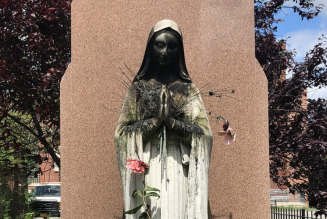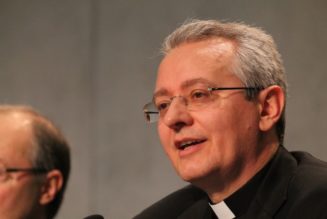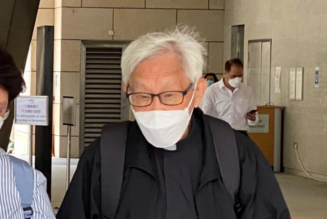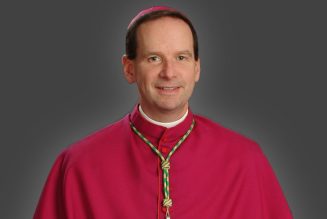.jpg)
Clinton explained that the Clinton Foundation was seeking to reach both those who are reluctant to receive the vaccine and those who refuse it outright through “trusted messengers.”
She said: “We’ve done work with a number of different religious communities, including some of our Catholic partners, to really help ensure that whoever is able to have a conversation is able to preempt or to answer whatever questions people may have, and even for those who are currently in the refusing group to get a message like: ‘The vaccines are waiting for you, and the vaccinators will be too, whenever you are comfortable. And we are going to keep reaching out to try to help you get comfortable.’”
Clinton, a Methodist and a supporter of legal abortion, was speaking at a three-day international conference on “Exploring the Mind, Body & Soul: How Innovation and Novel Delivery Systems Improve Human Health,” taking place virtually May 6-8.
It is the fifth conference of its kind organized by the Pontifical Council for Culture and the Cura Foundation, which describes itself as a “nonsectarian, nonpartisan” group “with a mission to improve human health globally.”
Emphasizing that she was speaking on her own behalf, rather than for the organizations she represents, Clinton called for international regulation of social media content on vaccines.
She said: “I personally very strongly believe there has to be more intensive and intentional and coordinated global regulation of the content on social media platforms.”
“We know that the most popular video across all of Latin America for the last few weeks, that now has tens of millions of views, is just an anti-vaccine, anti-science screed that YouTube has just refused to take down.”
“We know that often anti-vaccine content that is created in the United States, unfortunately, kind of flourishes across the world, through the pathways of WhatsApp, Facebook, Instagram…”
“And we know that — because I have tried — appealing to the leadership of these companies to do the right thing has just not worked, and so we need regulation.”
Speaking earlier on the second day, Dr. Francis Collins suggested that the coronavirus pandemic should be seen as both a medical and a spiritual crisis.
Collins, the director of the U.S. National Institutes of Health (NIH) and a member of the Pontifical Academy of Sciences, said that the medical crisis was obvious in terms of the number of people who have contracted the virus and died from it.
“But it has also disrupted us spiritually,” he said, “it has caused great amounts of struggle, in terms of mental health, anxiety, depression, even a sense of PTSD, from people who have gone through this over and over again.”
(Story cotinues below)
Speaking from his home office, where he said he had been living like a “hermit,” Collins said that while science seemed to provide the best hope for a way out of the pandemic, it could not answer people’s deepest questions about the meaning of suffering.
He said: “The hope that we might want to offer now comes in many ways from science, and it’s something that I’m immersed in every day: the development of these vaccines coming forward at extraordinary speed, with unexpectedly, remarkably high efficacy and safety — an answer to prayer, one might even say.”
“But also the other struggles that people are having which vaccines alone are not going to deal with… The sense of hopelessness that many have experienced, of fear, that is where I think faith is a much better solution, perhaps, than many have given it credit for.”
Collins, an evangelical Christian who was once an atheist, has overseen the NIH’s collaboration with pharmaceutical companies and government agencies to develop a vaccine for COVID-19.
He noted that he had experienced difficult moments as he watched the virus spread around the world, but had found solace in the Bible.
He said: “I’ve had my own times over these 15 months of feeling frustrated, maybe even a little hopeless, that this virus continued to win the battles that we were losing. And I could not help but ask God: ‘Why is this happening? Is there not something that you can do about it?’”
Join Our Telegram Group : Salvation & Prosperity





